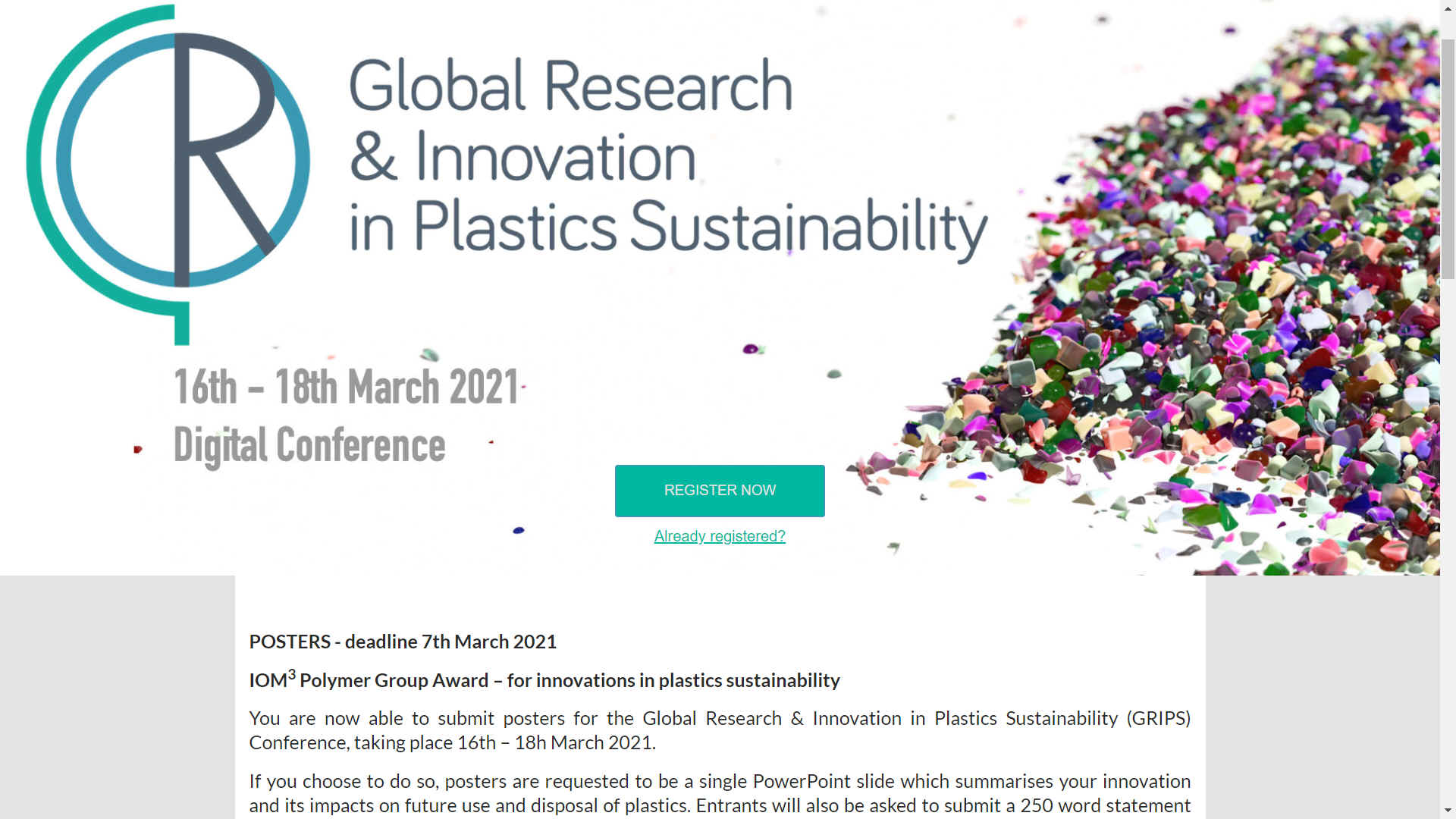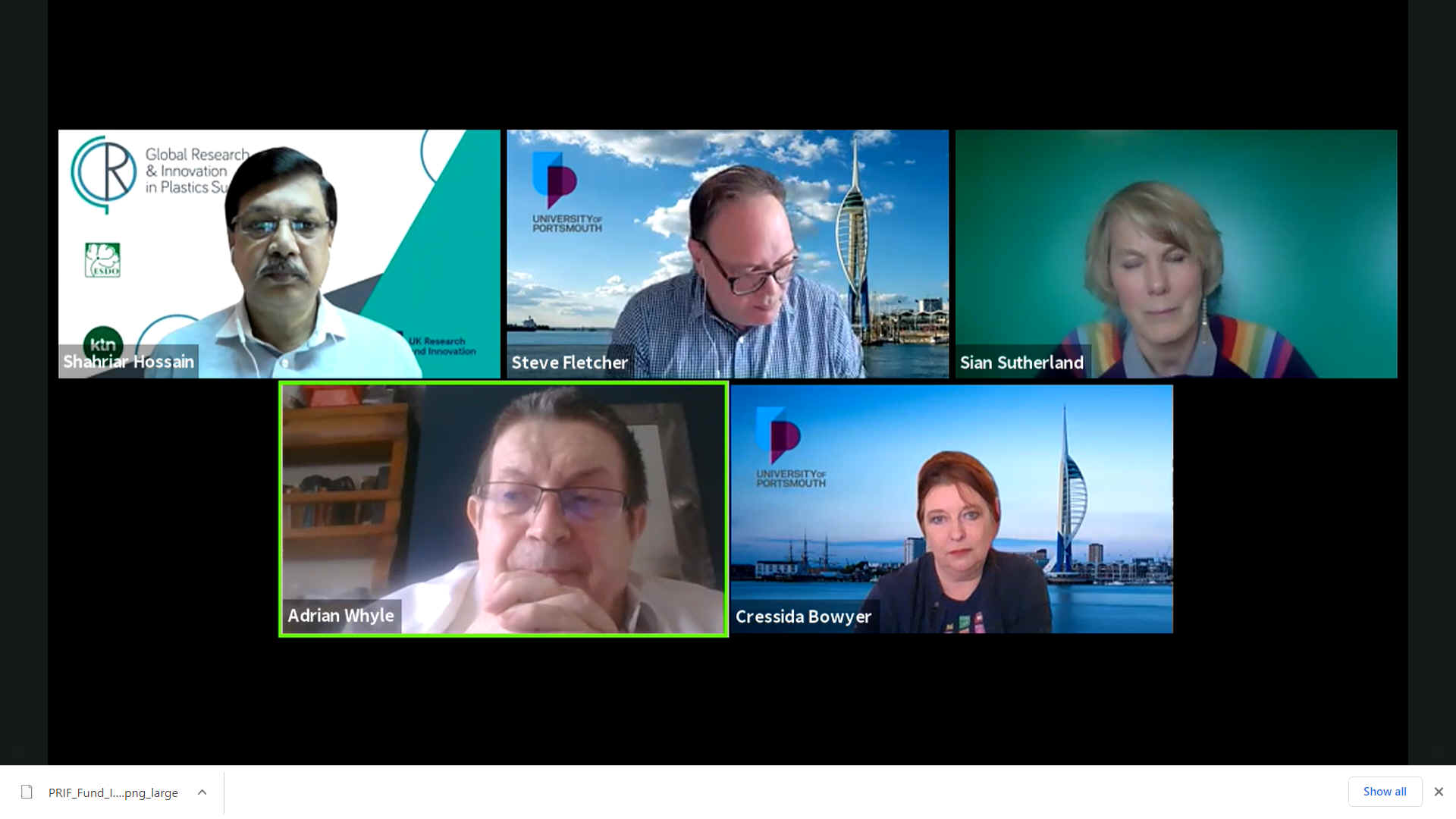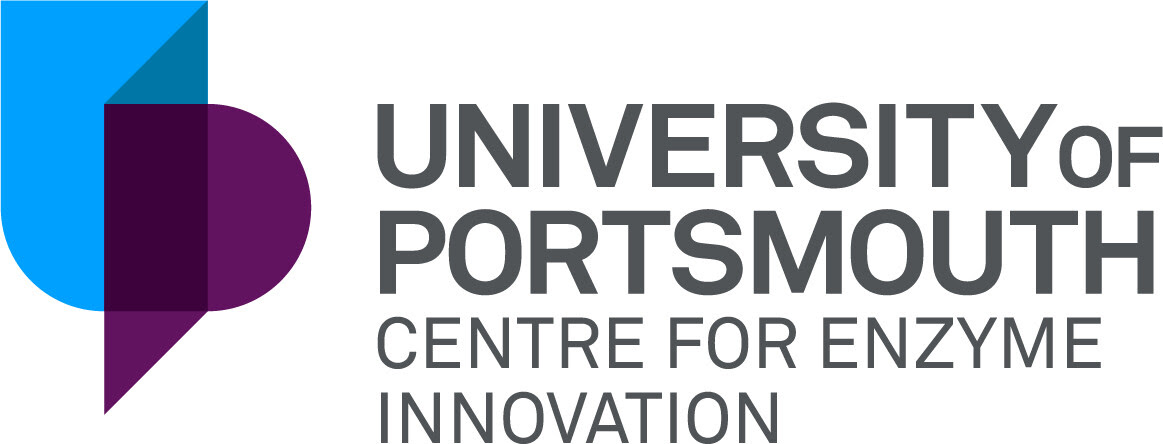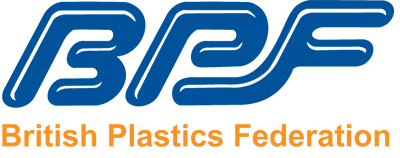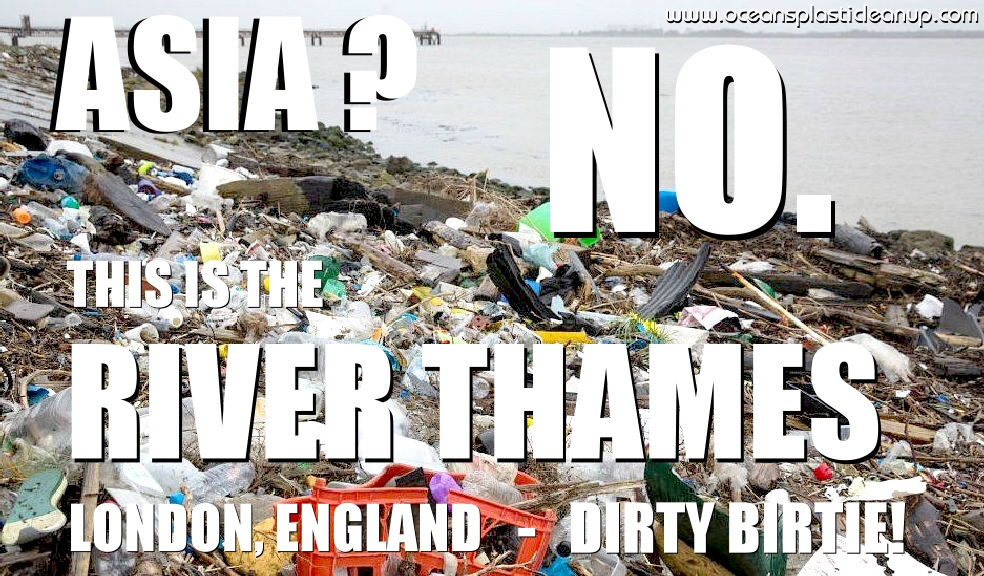|
GRIPS EMERGING PLASTIC POLICIES 2021
BIODEGRADABILITY - CITIZEN ENGAGEMENT - FUGITIVE PLASTIC - KEYNOTE SPEAKERS - MICROFIBRES - MITIGATION IMPLICATIONS - POLICIES
PLEASE USE OUR A-Z INDEX TO NAVIGATE THIS SITE, OR SEE HOME
|
||
GETTING A GRIP ON PLASTIC - Is a conference on plastic research and innovation.
Global Research and Innovation in Plastics Sustainability (GRIPS) is a conference, exhibition and showcase held on 16th – 18th March 2021 online. GRIPS is a virtual event for all those involved in the sustainability of polymers, plastics and elastomers.
In relation to the 7Seven Point Plastic Plan proposed in March of 2021 by the Cleaner Ocean Foundation's policy advisers, research into alternative methods of packaging and filming is essential for the Seven Articles to work effectively. Hence, the Foundation wholeheartedly supports such intervention by the Knowledge Transfer and UK Circular Plastics Network. The hope is that supermarkets may have the means to transform their thinking, along with drinks companies and appliance manufacturers.
Please find a useful link for delegates to view, shared by the session chair, Cressida Bowyer:
https://www.port.ac.uk/research/themes/sustainability-and-the-environment/revolution-plastics
SPEAKERS
Steve Fletcher Cressida Bowyer (Chair) Sian Sutherland Shahriar Hossain
We attended this event, noting a number of speakers who were not listed, but we have included, where we caught their names. If you are not included and wish to be added, we'd be pleased to include.
The speakers were thinking along the same lines, with different slants applied. We were very impressed with the experts on policy, summing up by saying that the industry should not sit on the fence while they wait five to ten years for policy to be put in place, hopefully binding the Parties to action.
It was felt that we needed political commitment that was legally enforceable and nothing less. That the people's voice would be important in encouraging politicians to make this happen. And that policy should be bottom up, rather than top down.
We should learn from Covid-19 that things can be accomplished in relatively short order when it really matters. The shocker is that plastic waste does not seem to command that same sense of urgency, and neither does global warming.
Q&A - Upcoming questions - Sorted by vote 17 March
Q. Fantastic panel. How do you combat the problem with moving from plastic packaging which has a smaller carbon footprint to produce and is easier to recycle than other materials such as paper or cardboard, particularly in food applications?
Q.
Our 7Seven PP suggests ways to help remove micro fibres from rivers at source, with filters on
domestic machines to remove plastic fibres that are normally flushed down the drain - similar to filters on tumble dryers (only wet). Could this help?
Q.
Does Life Cycle Assessment fail to encompass all of plastics negatives (a lack of ecological damage from polluted plastic represented within impact categories)?
Q. Jana Busch - Thank you for your presentation! In the UK, the ban on plastic straws, stirrers and cotton buds got delayed due to coronavirus outbreak last year. My question to you, how is the Covid-19 pandemic impacted global agreements affecting plastic?
Q. Katherine Ellsworth-Krebs - Question: What role do the panelists think big data and being able to track plastic flows (between countries, businesses, customers) play in any global agreement or action?
SPONSORS
EXHIBITORS
CONTACTS
Aileen Woodley | Events Manager, KTN
OCEAN CLEANUP PROJECTS A - Z
* Adidas * Algalita research foundation * Aliance to end Plastic Waste AEPW * Baltimore Mr Trash river cleaning barge * Boyan Slat's ocean booms * CLAIM H2020 EU marine plastic project * Earth Day - Fact sheet ocean plastic * Fionn Ferreira's ferrofluid extraction of microplastics * FlashLight Press Michelle Lord & Julia Blatt * GRIPS - Global Research & Innovation in Plastics Sustainability * Interceptor tethered river cleaning barges * Junk Raft - plastic awareness voyage * Miss Ocean - Plastic Awareness Events * 4Ocean recycled plastic bracelets * Nike - Sneakers from recycled materials, ocean spills * Plastic Oceans Org * Seabin * SeaVax autonomous drones * Surrey University PIRATE & Triton
CAMPAIGN FOR ZERO WASTE - Supermarkets and oil companies have a lot to answer for. Politicians must explain why they let the retailers and fossil fuel industry get away with a practice they know to be harmful to marine life. Companies are largely driven by money and greed, their shareholders often kept in the dark. All the while millions of seabirds are dying, polar bears are playing with plastic and even shellfish have become inedible in some locations. This is morally unsound!
The River Thames is one of the filthiest rivers in the world in terms of microplastics and fibers. Yet nobody from the UK Government has made contact with the Foundation in over four years - even to test the water - nor Bluebird Marine in the two preceding years 2015-16. It speaks for itself that they must be happy as pigs in ---t!
GRIPS are not alone in the fight against ocean plastic. These emerging technologies could all play a part in containing the mountain of plastic that is accumulating on the oceans floors, by recovering floating debris before it sinks. New ideas are welcomed.
LINKS & REFERENCE
https://
GLOBAL RESEARCH & INNOVATION IN PLASTICS SUSTAINABILITY - BIODEGRADABILITY - CAPTURING FUGITIVE PLASTIC - EMERGING POLICIES - KEYNOTE SPEAKERS - MICROFIBRES - MITIGATION IMPLICATIONS
|
||
|
ABS - BIOMAGNIFICATION - CANCER - CARRIER BAGS - COTTON BUDS - DDT - FISHING NETS - HEAVY METALS - MARINE LITTER - MICROBEADS MICRO PLASTICS - NYLON - OCEAN GYRES - OCEAN WASTE - PACKAGING - PCBS - PET - PETROLEUM - PLASTIC - PLASTICS - POLYCARBONATE POLYOLEFINS - POLYPROPYLENE - POLYSTYRENE - POLYTHENE - POPS - PVC - SHOES - SINGLE USE - SOUP - STRAWS - WATER
|
||
|
This website is provided on a free basis as a public information service. copyright © Cleaner Oceans Foundation Ltd (COFL) (Company No: 4674774) 2021. Solar Studios, BN271RF, United Kingdom. COFL is a company without share capital.
|
